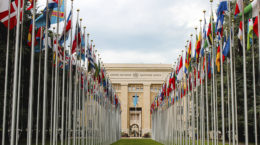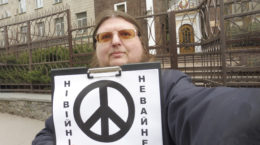Introduction
Belarusian conscientious objectors and deserters face severe repression for refusing to serve in the military or attempting to evade conscription. Despite these challenges, many continue to resist. This report outlines the situation for conscientious objectors and deserters in Belarus, focusing on the legal framework, army conditions, consequences for refusal, and the international response.
Legal Framework and Military Service
In Belarus, military service is mandatory for all men aged 18 to 27 who are registered in the military and not in the reserves. Conscription occurs twice per year, with about 10,000 young men called up each time. Those with a higher education serve for one year, while those without serve for one and a half years.
The Belarusian army comprises approximately 48,000 soldiers and 12,000 border guards. The country maintains a significant military force to exert control over its population.
Consequences for Conscientious Objectors and Deserters
Refusal to serve in the Belarusian army carries severe legal consequences. Under the criminal code, conscientious objectors can face fines, imprisonment, and, in extreme cases, the death penalty for desertion under the charge of “high treason.” Objectors may also be sentenced to up to five years in prison.
Additionally, extremist Telegram channels that offer support to conscientious objectors have been targeted by the government, and their administrators and participants are often charged with extremism, carrying a penalty of up to seven years in prison.
The Belarusian government actively criminalizes those who try to avoid military service, often subjecting them to public trials designed to intimidate others. These trials are often broadcasted, serving as a warning to anyone considering conscientious objection.
The Belarusian regime has labelled “Our House” as an extremist organisation, and many Telegram channels that support conscientious objectors have been classified as extremist. The editors of these channels face up to 7 years in prison in Belarus. Olga Karach was recognised as a terrorist and sentenced in absentia to 12 years in prison for her activities.
Employment and Military Service
In Belarus, proof of military service is required for any job. This means that every Belarusian must show their military ticket when applying for employment. Without this document, objectors are excluded from the formal job market and are often forced into illegal or informal work.
Conditions in the Belarusian Army
The conditions within the Belarusian army are harsh, with practices resembling imprisonment. Soldiers endure physical and psychological abuse, such as hazing and punishment, which includes leg blows and neck strikes. Soldiers may be confined to solitary confinement for up to 15 days for infractions like using a personal mobile phone. Additionally, every day, soldiers are required to watch state propaganda. This exposure to state-controlled media is meant to break their will and reinforce loyalty to the regime.
The harsh conditions, including the constant threat of punishment and brainwashing through propaganda, create an environment where individual resistance is crushed, and soldiers are left with little autonomy.
Military Academy and Forced Labor
Graduates of the Military Academy in Belarus are subjected to forced labor if they refuse to serve in the army. Those who graduate from the academy but refuse to fulfill their military obligations may be compelled to perform forced labor for at least five years. Additionally, they face heavy financial penalties, which can range from 25,000 to 30,000 euros for refusing military service. This system further traps objectors in a cycle of repression and financial hardship.
International Challenges and Lack of Safe Haven
Conscientious objectors from Belarus who attempt to flee the country face significant obstacles in neighboring states. While many seek refuge in Lithuania, they are often deported back to Belarus as Lithuania considers them a national security threat. Similarly, Russia, Turkey, and Kazakhstan do not offer proper asylum, often returning objectors to Belarus due to diplomatic pressure or lack of appropriate legal protections. This places many conscientious objectors in a cycle of fear, unable to find a safe place to live without the constant threat of persecution.
Conclusion
The repression faced by Belarusian conscientious objectors and deserters underscores broader issues of human rights violations and the suppression of freedom of conscience in Belarus. Despite the intense pressure, these individuals continue to resist, choosing peace over war, at great personal risk. The international community must continue to push for the recognition of conscientious objection as a human right and ensure that those fleeing persecution are granted asylum and protection.












